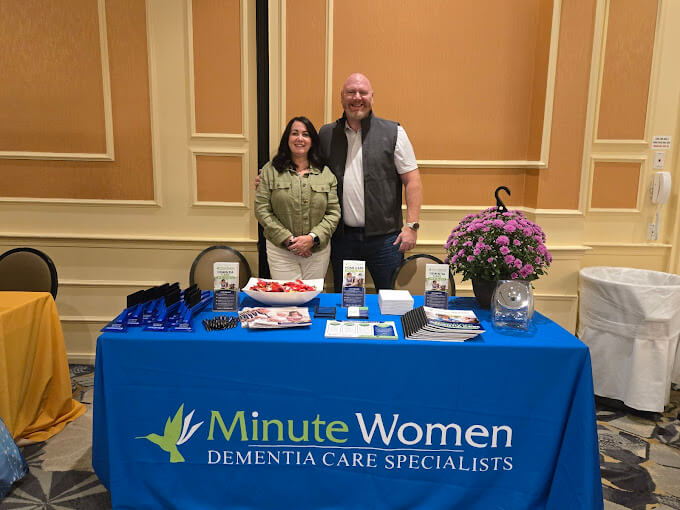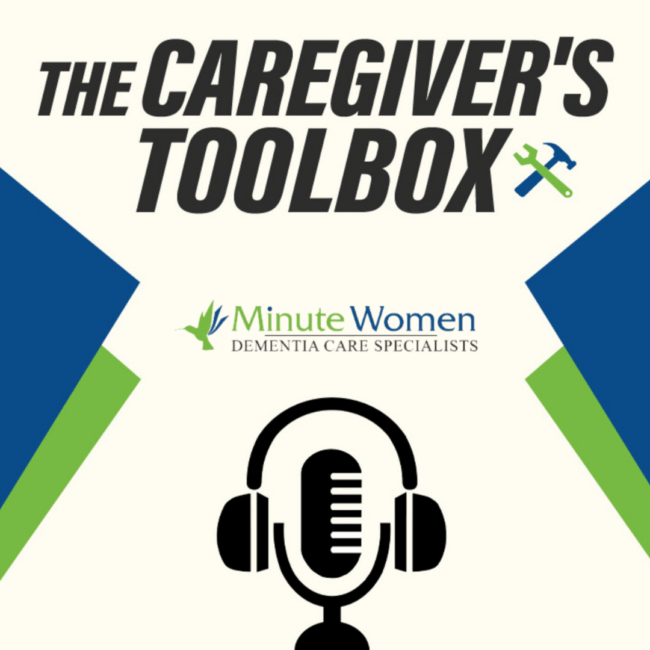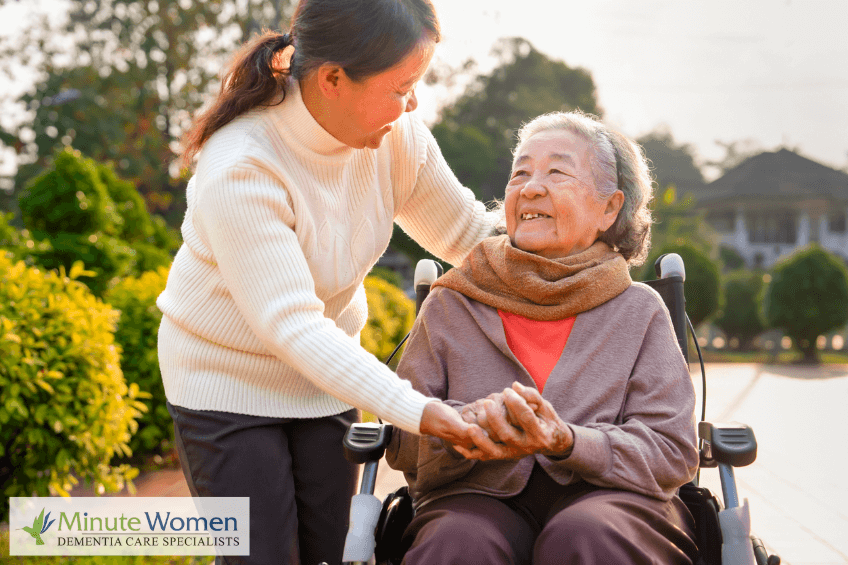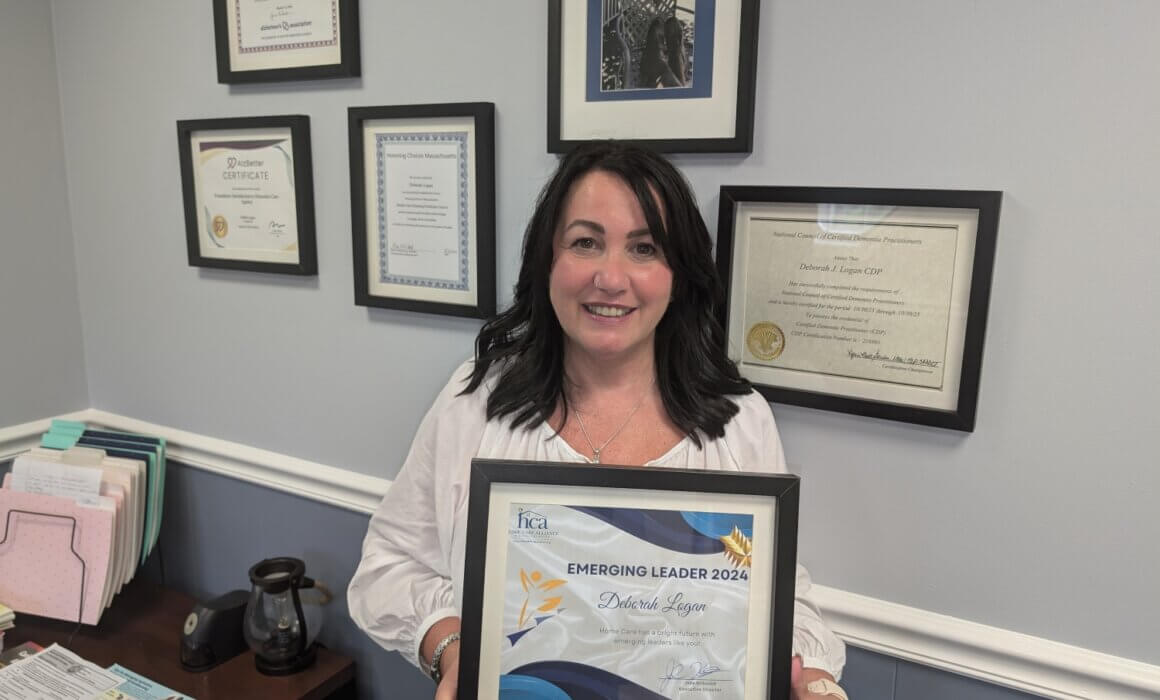How Minute Women Dementia Care Supports Families Facing In-Home Dementia Care
Caring for someone with dementia is a journey filled with love, challenges, and a lot of questions. Many families find themselves navigating unfamiliar waters, balancing their loved one’s safety and well-being while trying to care for themselves, too.
At Minute Women Dementia Care Specialists, we get it. We’ve worked with so many families in the Greater Boston area who are facing these same struggles.
This blog is here to show you how we can help—what our caregivers do, why senior in-home care is often the right choice, and how we can walk this path together.
What We’ll Cover:
- Understanding dementia’s impact
- Top 3 benefits of in-home dementia care
- The power of patience and partnership
- Trained memory care professionals
- 5 ways that Minute Women makes a difference
- 3 reasons why families choose Minute Women
- Minute Women case studies
- How to find qualified in-home dementia care
- Key takeaways
Understanding Dementia and Its Impact on Families
Dementia affects more than just memory—it can change someone’s ability to think, reason, or handle day-to-day tasks. Alzheimer’s is the most common form, but there are many others, and they all present unique challenges.
Families often start by stepping in to help, with adult children taking on caregiving roles. At first, it may feel manageable, but over time, as the needs grow, the toll can be overwhelming. Balancing caregiving with your own life—your kids, your job, your marriage—can quickly lead to burnout.
This is where professional in-home care comes in. It’s not about replacing the family—it’s about supporting you so you can focus on being there emotionally. At the same time, we handle the physical and hourly care.
We’re here to take care of your daily caregiving needs so you can focus on what you do best—spending quality time with your parents. Whether it’s sharing meaningful conversations, reminiscing about cherished memories, or enjoying activities and hobbies that bring them joy, we make it possible for you to be present in the moments that matter most.
You know your parents better than anyone, and you deserve the chance to connect with them without the weight of caregiving responsibilities. Let us handle the care so you can focus on being their son or daughter—roles that only you can fill.
The Top 3 Benefits of In-Home Dementia Care
In-home care offers so many advantages over institutional settings:
- It’s familiar, keeping your loved one surrounded by the comforts of home.
- It’s personal, with one-on-one attention tailored to their unique needs.
- It lets families stay together, so you can focus on being present and building memories.
At Minute Women, we’re here to help you keep the promise of home—a place where your parents can age with dignity and love. Together, we’ll create a care plan that works for your family and ensures your loved one thrives in a safe environment.
The Power of Patience and Partnership
Dementia care is a team effort, and finding the right rhythm takes time. Families bring invaluable insight—your loved one’s history, routines, and preferences—while we bring the expertise. Together, we discover what works best, step by step.
It’s completely normal for clients to be unsure about accepting help initially. Building trust with a caregiver is a process that typically takes at least three visits. The journey of trust and partnership requires time, patience, and understanding from everyone involved—the Memory Care Professional (MCP), the person living with dementia, and the family.
Trained In-Home Dementia Care Professionals
Imagine if a stranger showed up at your door, asking you to undress and take a shower. How would you react? You’d likely feel hesitant, confused, or even frightened. Now, add the complexities of dementia to the situation. It’s easy to see why trust doesn’t happen overnight.
Our MCPs understand this delicate dynamic and are trained to approach each situation with sensitivity and care. Over time, as trust develops, tasks that once seemed impossible—like assisting with hygiene—become more manageable.
This bond isn’t built in a day. Still, with consistency, experience, and hourly care, it grows into a meaningful relationship that makes life easier and more comfortable for everyone involved. It’s this partnership that truly makes a difference, allowing us to provide care that not only meets needs but also honors dignity and builds connection.
We can help you find expert-level dementia care for your aging parents
5 Ways That Minute Women’s In-Home Dementia Care Makes a Difference
At Minute Women, we don’t just provide care—we become part of your team, working collaboratively to support your family. We understand that caring for a loved one often involves multiple layers of planning, which we call the three pillars of care: legal, financial, and care.
We’re happy to integrate seamlessly with your existing care team, which might include care managers, physicians, fiduciaries, and elder law attorneys. By collaborating together, we can ensure your parent receives the thoughtful, comprehensive care they deserve.
Our approach gives you peace of mind, knowing the responsibility for your parent’s safety and well-being isn’t solely on your shoulders. With us by your side, you can focus on spending quality time with your loved one while trusting that their care is in expert hands.
Every person’s dementia journey is different, so we tailor everything to the individual while working with you. Here’s what sets us apart:
1) One-On-One Care Plans
We start by getting to know your loved one—what they need, what makes them comfortable, and how we can help. Our plans cover essential needs like bathing, eating, and keeping them safe from wandering. Still, they’re also flexible and often change over time. As things change, so do we.
2) Trained In-Home Dementia Care Professionals
Our caregivers, known as Memory Care Professionals (MCPs), are specifically trained in dementia care with a person-centered approach. They’re skilled at managing mood changes, communicating effectively, and fostering as much independence as possible for our clients—all with empathy and professionalism.
At Minute Women, we don’t just place “warm bodies” in your home or follow a first-come, first-served approach. Instead, we take the time to thoughtfully match our MCPs to your loved one based on their skills, personality, and compatibility—only then do we consider availability. This ensures a deeper connection between caregiver and client, which is essential for building trust, comfort, and truly personalized care.
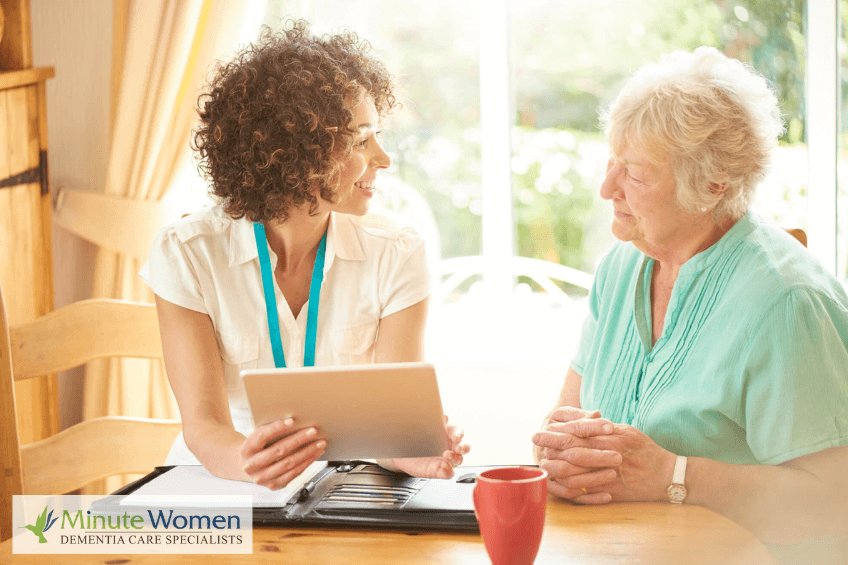
3) Personalized Recommendations
We’re here to help make your loved one’s home as safe and comfortable as possible. From recommending grab bars and clearing pathways to enhancing bathroom safety and identifying potential hazards, we’ll work with you to create a secure environment that supports aging in place.
Furthermore, we have strong relationships with other senior care professionals who provide services that complement in-home care, such as home modifications, medical equipment providers, and financial options to help pay for services. Together, we can create a comprehensive plan to ensure your loved one can thrive at home safely and comfortably.
4) Community Engagement
Our caregivers don’t just fulfill tasks—they build relationships. Whether it’s chatting over coffee, engaging in a favorite hobby, or simply being a friendly face, these moments of connection bring comfort and joy to clients and families alike.
5) Collaboration and Communication
Collaboration and open communication are at the heart of how we provide dementia care. We believe in working closely with families and sharing our expertise while actively listening to your insights and feedback. This partnership allows us to adapt our care to meet your loved one’s evolving needs.
While we’re highly trained in home service care, you know your parent better than anyone else—their history, preferences, and unique personality. That’s why collaboration is essential. By combining your knowledge with our skills, we can create an environment where your loved one feels valued, understood, and truly supported to live life to the fullest.
Contact us today for a fast, friendly conversation about your loved one’s needs
3 Reasons Families Choose Minute Women for In-Home Dementia Care
We’ve been proudly working with families across Greater Boston for years, helping them navigate the challenges of in-home dementia care with compassion and expertise. Here’s why so many families trust us to care for their loved ones:
1) Experience You Can Count On
Minute Women has been a family-owned agency operating in Massachusetts since 1969—that’s over 55 years of trusted care. Every one of our caregivers is dementia-trained, insured, and bonded, ensuring your loved one receives skilled, professional support.
2) Flexibility to Adapt as Needs Change
We understand that dementia is a progressive disease, and care needs to evolve over time. Our care plans are designed to be dynamic, adapting as your loved one’s condition changes. We update care plans at least every six months—often sooner—to ensure your parent always receives the right level of care. Whether it’s additional supervision, new safety measures, or more hands-on assistance, our approach grows with your loved one’s needs.
3) A Collaborative Partnership
We believe in working with you, not taking over. This is a team effort, and we’re here to support you as part of your broader care team. Whether you’re working with care managers, physicians, or elder law attorneys, we collaborate seamlessly to provide comprehensive support. Our goal is to empower you to honor your parent’s dignity and uphold their wish to age in place rather than move to a nursing home or facility.
Real Stories of Families We’ve Helped
Take Monica’s story. Just days before Christmas, her father-in-law, Richard, was discharged from the hospital. His dementia complicated his medical recovery, leaving his wife, Betty, feeling overwhelmed at the thought of bringing him home.
Monica reached out to Minute Women, and we stepped in immediately. We created a senior home care plan that prioritized Richard’s safety and comfort, allowing him to spend the holidays at home with his family.
Or Jack and Shelley, a couple from Lexington who faced the challenges of aging together. When Jack’s dementia progressed, Shelley leaned on Minute Women to provide the support she needed to keep him at home while managing her own well-being.
These stories remind us why we do what we do—to help families navigate these moments with confidence, compassion, and the peace of mind that they’re not alone.
Take the First Step in Finding In-Home Dementia Care
You’re the one who knows your loved one best—their routines, their preferences, and the little things that bring them comfort. When the time comes to explore in-home dementia care, you’re already a step ahead because you’re taking action to ensure they receive the care they deserve.
We’re here to support you every step of the way. It all begins with a conversation where we’ll listen to your concerns, learn about your loved one’s needs, and work with you to create a plan that feels right.
Here’s how we make it happen:
- An in-depth assessment that focuses on understanding your loved one’s unique situation and care preferences.
- A thoughtful caregiver match ensures compatibility and trust between your loved one and their Memory Care Professional (MCP).
- Ongoing support to adapt care as your loved one’s journey evolves, giving you the confidence that their needs are always being met.
Key Takeaways
You’ve already taken the most important step—seeking the best for your loved one. In-home dementia care is about keeping your parents safe, comfortable, and connected while allowing you to focus on what matters most: your relationship.
If you’re ready to explore senior in-home care or simply want to talk through your concerns, we’re here for you. Let’s work together to create a plan that gives you peace of mind and helps your loved one live with dignity and comfort at home. The next chapter starts with you. Contact us today to get started!
Call us to learn how our in-home dementia care specialists can help!


